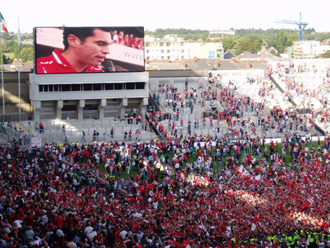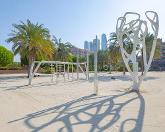see all jobs
Croke Park gears up for 'foreign' sport
History will be made this Sunday when the Irish and French rugby union sides will meet in the Six Nations at Croke Park – marking the end of the Gaelic Athletic Association's (GAA) famous Rule 42, which has prevented the playing of 'foreign' sport on GAA pitches for more than a century.
Although the stadium has hosted Mohammed Ali, U2 and other sporting events, including Australian Rules Football and the opening and closing ceremonies of the Special Olympics, the GAA has resolutely kept Croke Park's doors closed to rugby and football, until now.
A landmark vote in 2005 against Rule 42 was proposed due to the redevelopment of Lansdowne Road, which gave permission to the Irish rugby union and football teams to use the venue to host international fixtures.
Although the game against France will be groundbreaking, for many, the greatest symbolism will be presented by England's visit on 24 February.
In 1920, British troops opened fire on a crowd gathered to watch Tipperary play Dublin in a gaelic football friendly, killing 14 people and injuring 80.
At the height of the Irish War of Independence, the tragedy galvanised the Irish movement – Croke Park has stood as a symbol of Irish nationalism since.
The 82,000-capacity stadium is one of Ireland's best kept secrets. Although it regularly attracts some of the largest audiences in European sport – 81,678 people watched Dublin play Tyrone in the first round of the Gaelic football league last week – it has a low international profile.
The rugby and football internationals will make the GAA a substantial amount of money – an estimated £1.3m a match – which will provide valuable funds for reinvesting in Gaelic sport across the country.
- News by sector (all)
- All news
- Fitness
- Personal trainer
- Sport
- Spa
- Swimming
- Hospitality
- Entertainment & Gaming
- Commercial Leisure
- Property
- Architecture
- Design
- Tourism
- Travel
- Attractions
- Theme & Water Parks
- Arts & Culture
- Heritage & Museums
- Parks & Countryside
- Sales & Marketing
- Public Sector
- Training
- People
- Executive
- Apprenticeships
- Suppliers





























